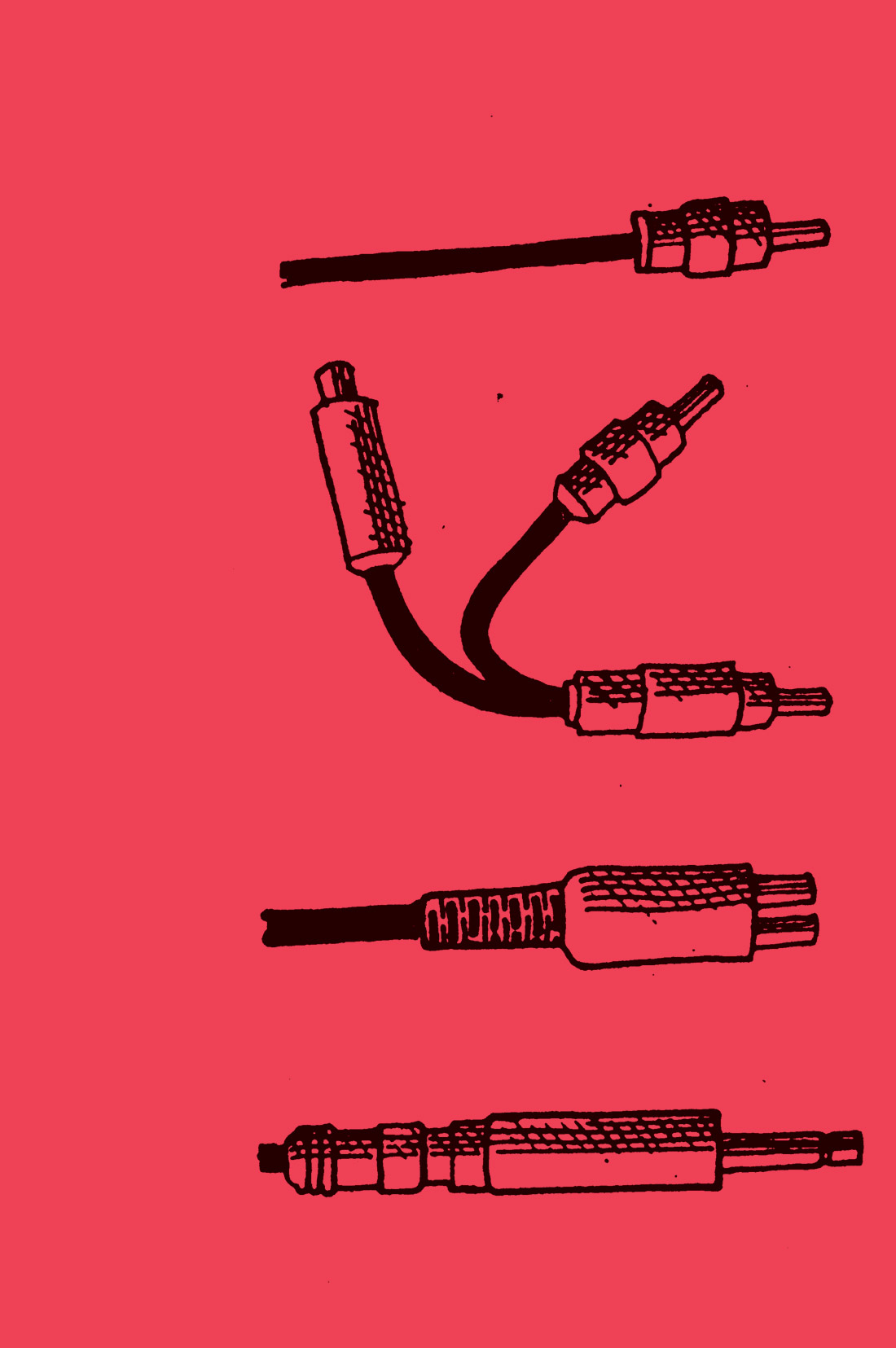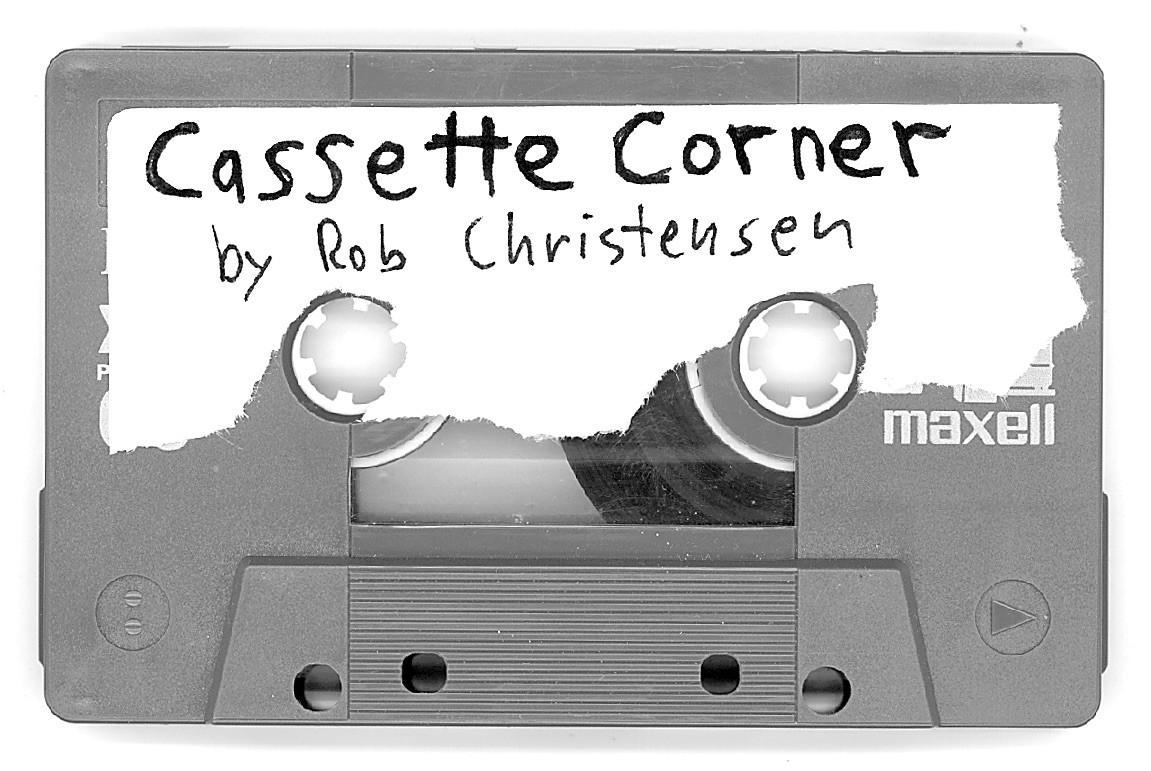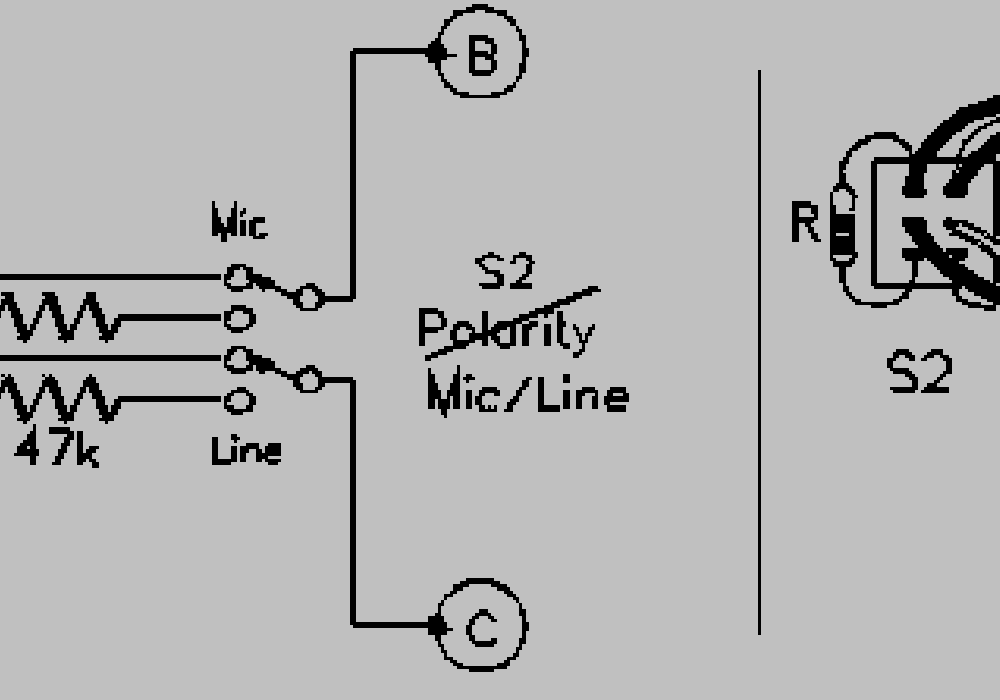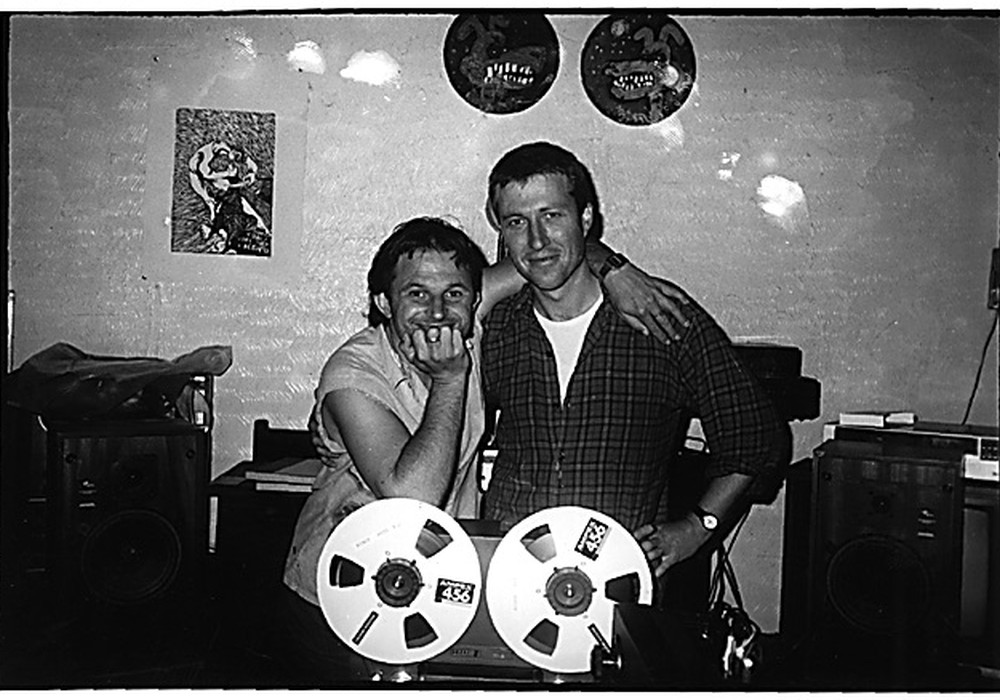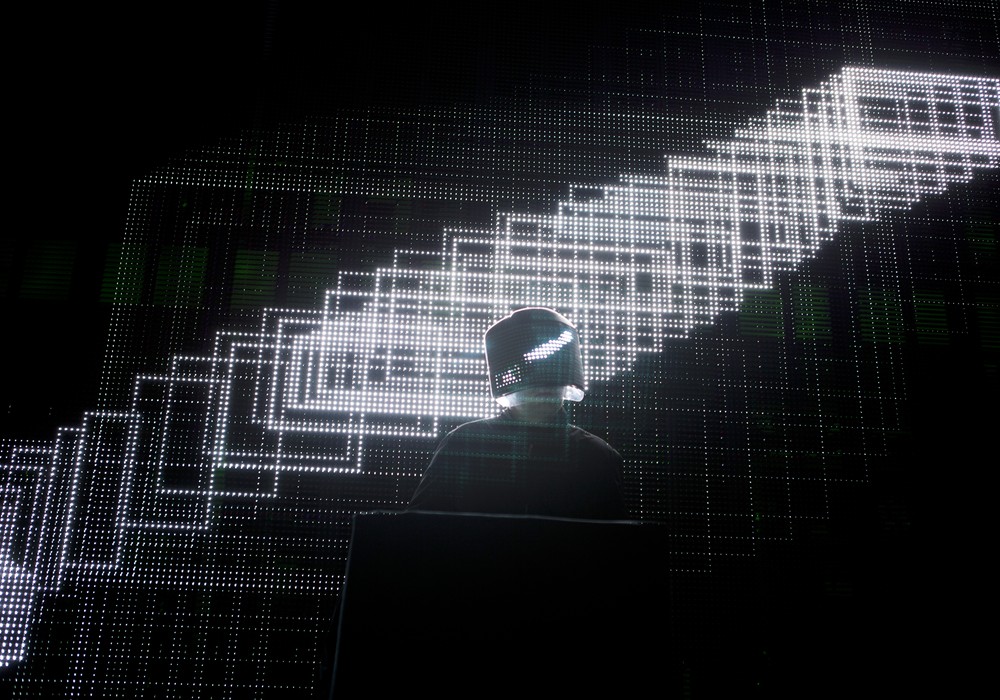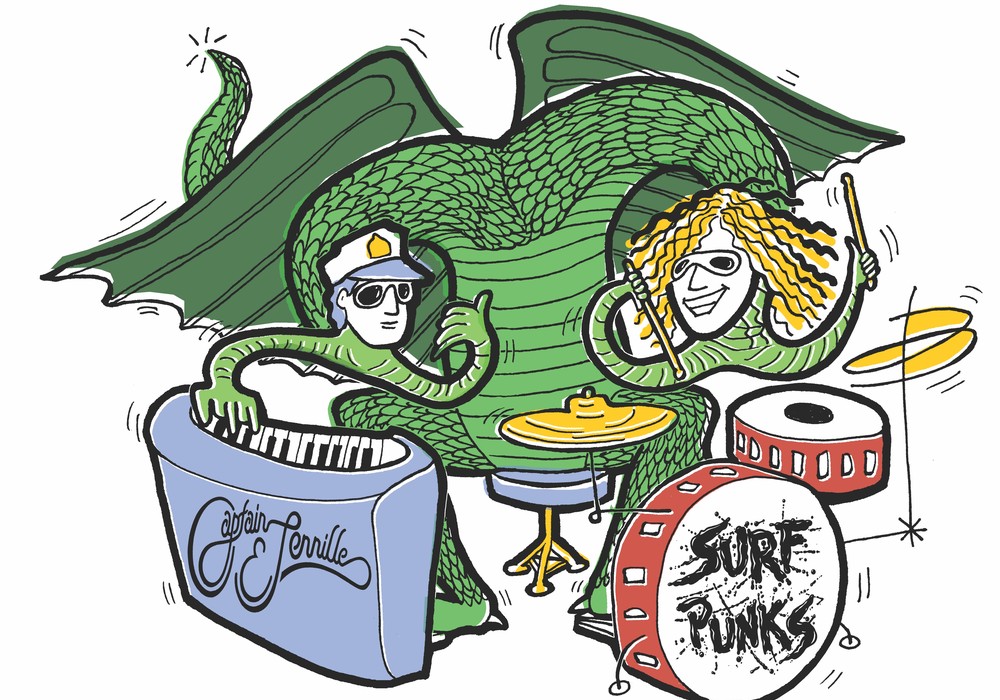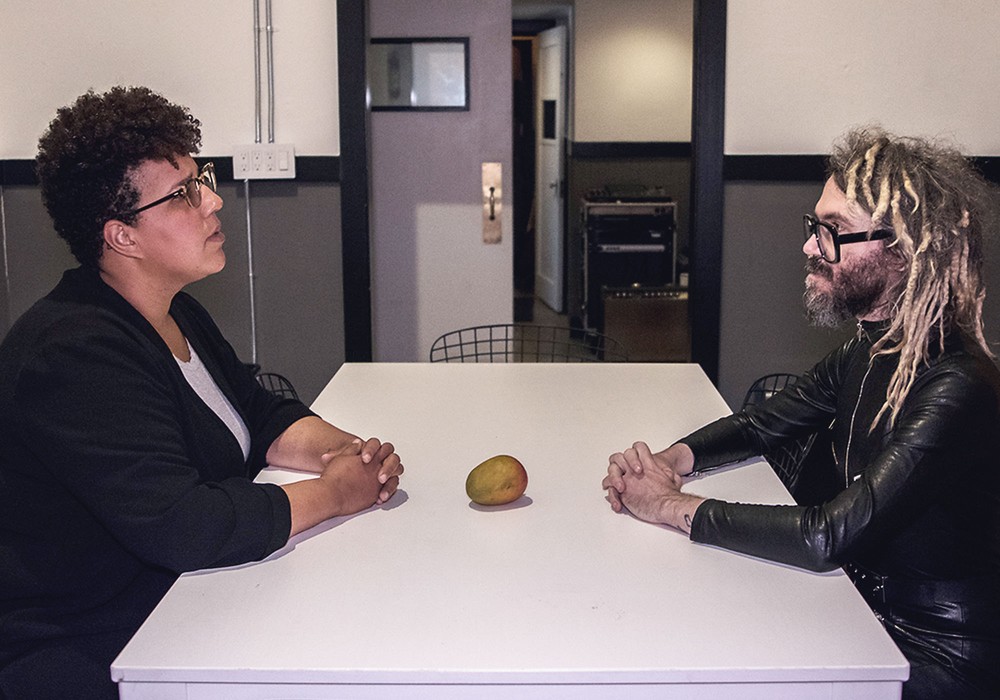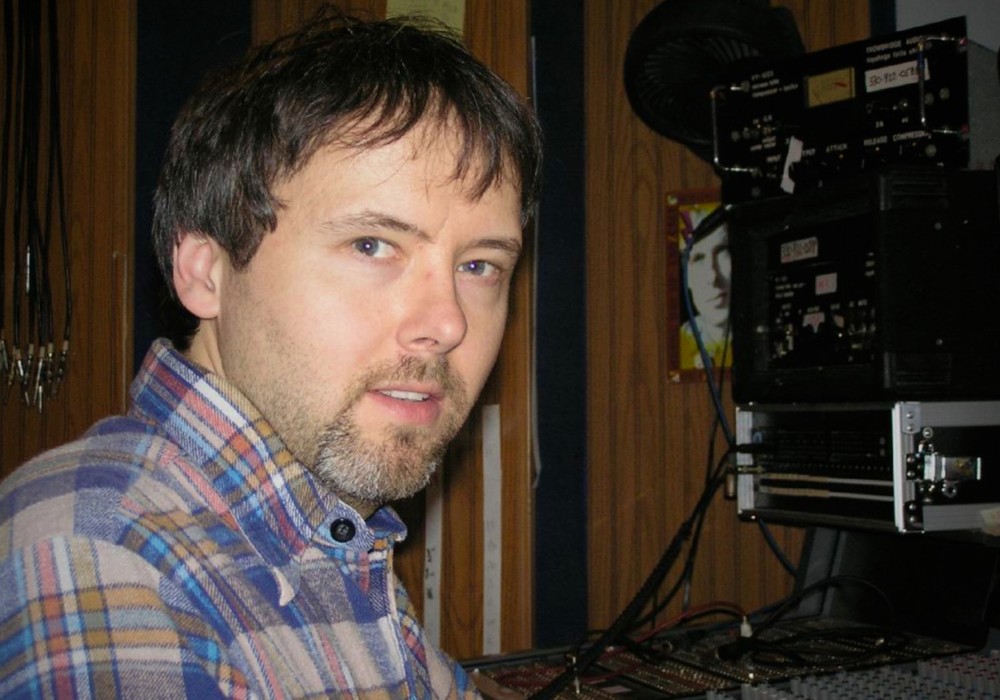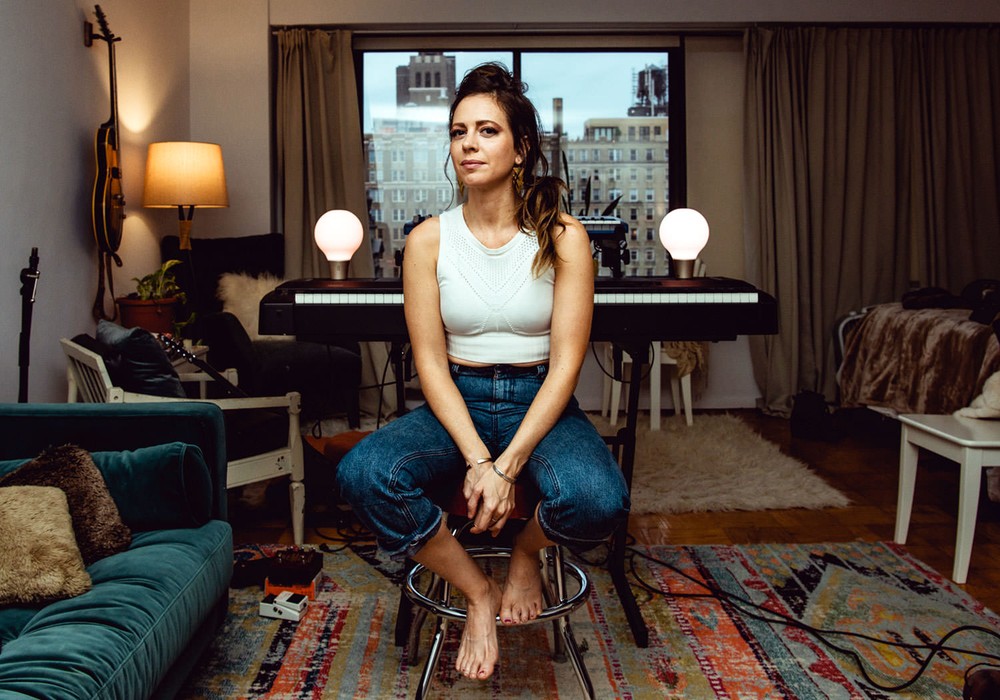The Unseen is a three-piece band that has split its time between my hometown of Eureka, CA, and Portland, OR. Their sound is largely influenced by sixties pop, notably Beatles, Beach Boys, and Booker T. and the MGs. There's also a huge Elvis Costello component to their sound, as well as a little Van Morrison. A few years back in Rolling Stone, the Foo Fighters' Dave Grohl described them as "a cover band of 17-year-old kids who dressed like the Jam and could play any song you asked for." Well, the members of The Unseen are no longer 17, and they never were strictly a cover band. But provided they've heard it, and they've heard lots, they can play any song you ask for. The Unseen has just released their second album Worldview, which shows that they have undergone considerable growth since their first release Thinking of Thoughts. Worldview makes a solid case for the benefit of recording an album in your own home rather than being a slave to the clock and the budget in a "professional" studio. This of course is provided that someone in the band has the engineering skills, ears, and talent to pull it off. Here's what Unseen singer / main songwriter / guitarist had to say about the making of Worldview, recording school versus learning on your own, and a few other things.
Give us a brief history of The Unseen.
The Unseen has been recording and playing together, in some form or another, for about eight years. The band started out with Kevin (Porter — bass) and myself. Kevin brought in Ed (Pierce — drums) later through a mutual friend in school. All three of us condensed sound I was looking for.
How did recording Worldview at home compare with recording Thinking of Thoughts (The Unseen's first release) at (Humboldt County's) Redwood Creek Recording?
Thinking of Thoughts was recorded and mixed over three days in September, 1993. I like to call it our Please Please Me album. It was basically a recorded live performance, with very few overdubs or treatments. But it failed to capture our excitement as a group. The songs were all things I had written long ago. I felt I had to put them out in order to push them out of my head and get on with the new songs. I still feel that album has a certain urgency or immediacy, and it has some really good songs on it. Recording Worldview was a much better experience overall. I had time to do things, like experiment, without having to worry about the cost. I was also in control of how things sounded, so I couldn't blame anyone but myself.
Thinking of Thoughts came out on CD. Worldview will only be available on cassette (at least initially). How come? I assume the answer is "money." What was it like self-releasing your own CD?
You're right. It's all about money. Both times. Releasing a CD is scary. Questions and doubts always arise. Releasing a cassette is less intimidating. I would love to do a CD again, and I plan to sometime in the future.
You went to a recording school a few yearsback. Whatwasthatlike?
Recording school was really a joke. I just didn't know what to do after I got out of high school. I didn't want to go straight to college, so I went there. I didn't do well; I didn't really try. I knew it was the wrong choice as soon as I got on the plane. I've learned everything I need to know from my own personal recording. That's the best way to learn, and I've still got so much to learn. I'll never lose my fascination or awe of this medium. But I didn't learn a thing at recording school, but maybe that's my fault.
My assumption is that a recording school is a place where they don't care too much about music, art, or great records of the past; they stress that you "learn the latest techniques on state-of-the-art equipment." Is my assumption accurate?
You're very accurate. There certainly wasn't any great aesthetic study of music going on there. It was more like a baked bean canning factory; a production line. They wanted to get you in and get you out. It was all very surface level, no real depth.
In our previous conversations, you've mentioned that you think U2's Achtung Baby ushered in some significant changes in recording. Care to elaborate?
I think Achtung Baby took some elements that were missing from rock and roll and brought them back. I'm talking mostly about experimentation here. At one time recording was more than just getting the song down on tape or record or CD; it was about finding something new. I get bored hearing the same types of recorded sounds on newer recordings. They're too crisp, too perfect. I like the recording to be a bit more raw, but with intelligibility. I want to be able to hear each specific instrument. It seems to me that rap music has the corner on this market now. Nowadays, I hear the most innovative recorded material on rap music. Different sounds, different instruments. I think Achtung Baby took those elements from rap, where they had originally been in rock and roll, and brought them back. Whether or not someone is a U2 fan, I think that it's easy to listen to that album as a sonic experience and not just as an album of music.
Are you planning on sending Worldview to labels, shopping it around? Are you...
The rest of this article is only available with a Basic or Premium subscription, or by purchasing back issue #12. For an upcoming year's free subscription, and our current issue on PDF...
Or Learn More
